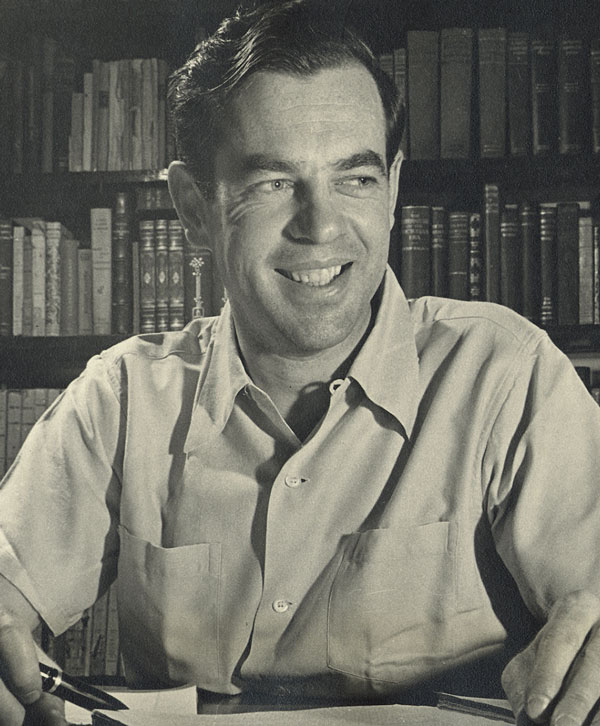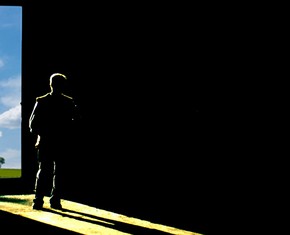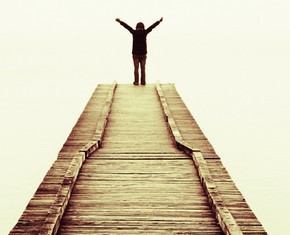The views expressed in our content reflect individual perspectives and do not represent the authoritative views of the Baha'i Faith.
The first step on any seeker’s path always begins by looking within. No true spiritual search commences without an exploration and understanding of the self.
Luckily, the modern world gives most of us the ability to independently investigate the truth and decide what to believe for ourselves. In the not-so-distant past—before the advent of literacy, widespread education and universally available knowledge—humanity needed clergy, guides, gurus, priests and divines to transmit learning, wisdom and spiritual insight. Now, all that is rapidly changing. Today each of us has the capacity and the responsibility to conduct our own search for knowledge and inner meaning, and become our own guide on the seeker’s path.
Before we can study the central issues of life today, we must destroy the prejudices and fallacies born of previous centuries. – Leo Tolstoy
The individual has always had to struggle to keep from being overwhelmed by the tribe. If you try it, you will be lonely often, and sometimes frightened. But no price is too high to pay for the privilege of owning yourself. – Friedrich Nietzsche
In order to find truth we must give up our prejudices, our own small trivial notions; an open receptive mind is essential … It also means that we must be willing to clear away all that we have previously learned, all that would clog our steps on the way to Truth; we must not shrink, if necessary, from beginning our education all over again. We must not allow our love for any one religion or any one personality so to blind our eyes that we become fettered by superstition. When we are freed from all these bonds, seeking with liberated minds, then shall we be able to arrive at our goal. – Abdu’l-Baha, quoted in J. E. Esselmont’s Baha’u’llah and the New Era, p. 201.
If we want to pursue genuine inner spiritual development, it requires the progressive achievement of more encompassing, more effective and more aware kinds of thinking and feeling—and that means detaching from your old tradition or your old mindset or your old philosophy of life as you embark on a search for new meaning and growth. This isn’t easy—in fact, Baha’u’llah describes exploring the self as a “realm of conflict:”
On this plane, the self is not rejected but beloved; it is well-pleasing and not to be shunned. Although at the beginning, this plane is the realm of conflict, yet it endeth in attainment to the throne of splendor. – Baha’u’llah, The Four Valleys, p. 50.
Most people would agree, at least intellectually, that an independent search for truth makes sense. While detaching from tradition may seem simple for the most adventurous among us; for some it can threaten old patterns, habits and ways of life. It often involves distancing yourself from established, comfortable ways of looking at life, from familial cultures, even from psychological patterns. That can create an unfamiliar, temporary rootlessness, a sense of feeling disconnected from our old lives.
So searching for your true self will raise big questions—but after all, the root word of questions is quest.

Joseph Campbell
Then again, all maturation and growth can bring about those un-anchored feelings, and every spiritual wayfarer risks going through them. Never content to pursue a course just because parents or ancestors did, true seekers set themselves free to follow a unique map with a new mind. The great scholar of myth Joseph Campbell describes this stage of detachment and search in mythical and psychological terms:
The first step, detachment or withdrawal, consists in a radical transfer of emphasis from the external to the internal world, macro- to microcosm, a retreat from the desperations of the waste land to the peace of the everlasting realm that is within. But this realm, as we know from psychoanalysis, is precisely the infantile unconscious. It is the realm that we enter in sleep. We carry it within ourselves forever. All the ogres and secret helpers of our nursery are there, all the magic of childhood. And more important, all the life-potentialities that we never managed to bring to adult realization, those other portions of ourself, are there; for such golden seeds do not die. If only a portion of that lost totality could be dredged up into the light of day, we should experience a marvelous expansion of our powers, a vivid renewal of life. – The Hero with a Thousand Faces, p. 17.
Caution: this map of inner spiritual search you have begun to discover and create can direct you down a hard road. It could take you over some difficult, rocky terrain. Unearthed obstacles, some buried for years, can rise up and challenge you. You might decide, as your journey progresses, to risk the displeasure of parents or children or spouse or peers or even your culture by challenging your own current ideas or ideology or view of life or beliefs. You could court alienation or disappointment by leaving traditional values or home or old principles to pursue a different course, by developing new philosophies, new standards, new convictions. In The Seven Valleys, Baha’u’llah outlines the requirements of this sort of unfettered search:
The steed of this Valley is patience; without patience the wayfarer on this journey will reach nowhere and attain no goal … It is incumbent on these servants that they cleanse the heart–which is the wellspring of divine treasures–from every marking, and that they turn away from imitation, which is following the traces of their forefathers and sires, and shut the door of friendliness and enmity upon all the people of the earth. – Baha’u’llah, The Seven Valleys, p. 4.
Here’s the central question: are you willing to take this journey? Can you detach enough from the opinions and convictions of others to truly value, own and inhabit your real inner self? The tests and trials of the true seeker always center around the inner struggle to confront the old self and bring a new one to life. Exploration and search foster growth and change—which may be why so few people truly undertake a deep, searching and fearless inventory of their own lives. Despite the wonder and joy in it, search always challenges our assumptions, requires risk and asks us to grow.
You May Also Like
Comments

















If you do follow your bliss,
you put yourself on a kind of track
that has been there all the while waiting for you,
and the life you ought to be living
is the one you are living.
When you can see that,
you begin to meet people
who are in the field of your bliss,
and they open the doors to you.
I say, follow your bliss and don't be afraid,
and doors will open
where you didn't know they were going to be.
If you follow your bliss,
doors will open for you that wouldn't ...have opened for anyone else.
Joseph Campbell